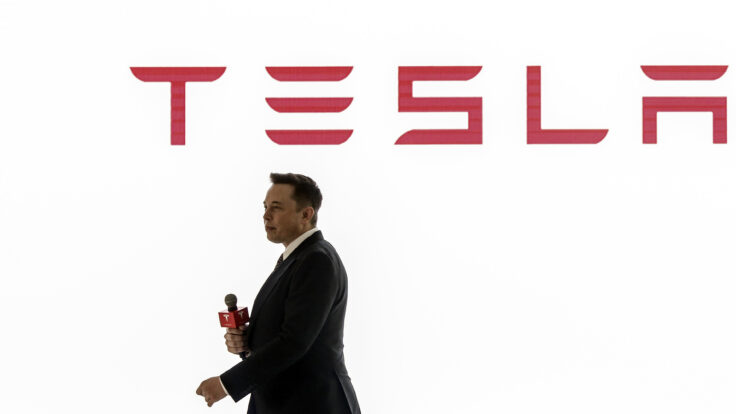 |
 |
|
Welcome to Dry Powder, coming to you from Nantucket as fall closes in. Today’s issue, of course, focuses on the predictable collapse of Edgar Bronfman Jr.’s spectacularly unserious attempt to acquire Paramount Global. Can we now put this whole saga behind us?
But first…
|
- The Iger-Roberts tango: What the heck is going on with the sale of Comcast’s one-third ownership stake in Hulu to Disney? It hasn’t received nearly the attention that the sale of Paramount Global has, even though, given Hulu’s roughly $30 billion total valuation, it’s a larger deal. The Hulu negotiations have also been going on for nearly as long as the haggling over Paramount, and still apparently have not been resolved.
The bid-ask deal process kicked off nearly a year ago, last November 1, when Disney announced its intention to acquire the 33 percent of Hulu that it didn’t already own. At that time, Disney said it would pay Comcast at least $8.61 billion for its one-third stake, reflecting the previously agreed-upon floor price for all of Hulu, $27.5 billion. And in December 2023, Disney did pay Comcast the $8.6 billion. But, of course, that was just a starting point, and few expected Disney would get away with paying so little. How much more than $8.6 billion will Disney have to pay Comcast? Each side hired a banker to debate the valuation: JPMorgan Chase for Disney and Morgan Stanley for Comcast. JPMorgan Chase would be arguing for a low valuation of Hulu and thus, Comcast’s stake in it, while Morgan Stanley would be arguing for a high valuation. This particular game of chicken was structured in such a way that if the banks’ valuations of Comcast’s stake were within 10 percent of one another, the true value would be determined by the arithmetic average of their valuations.
But if those valuations were not within 10 percent… then it would really get fun: A third investment bank would be hired to submit yet another, independent valuation of Hulu. And at that point, the third bank’s valuation would be averaged with the closest valuation from the first two banks. All this has indeed happened, according to Disney’s Q3 S.E.C. filing. But the two sides are still at an impasse.
Apparently, according to published reports, JPMorgan Chase valued Hulu at the floor price of $27.5 billion, while Morgan Stanley valued Hulu at $40 billion. Quelle surprise! According to the Disney filing, the matter is now in “confidential arbitration”—not to determine once and for all the valuation of Hulu, but rather to figure out how the two sides should proceed from here to determine how much Disney should pay Comcast beyond the already agreed-upon amount. “Once the arbitration is completed, determination of the final equity fair value will take into account the valuation of a third appraiser pursuant to the appraisal process as resolved by the arbitration,” Disney wrote in its filing, allowing that range could be anywhere from nothing additional being paid to Comcast to an additional $5 billion being paid to Comcast. This is nuts. Ten months-plus for a valuation exercise? Well, apparently, even more time is needed. The matter is expected to be resolved sometime in 2025. Of course, I’m happy to offer my own valuation if Bob Iger or Brian Roberts are interested and if it would resolve the dispute more quickly. At this point, what’s one more fee?
- A quick update on Venu from my partner Eriq Gardner: The Disney-Fox-Warners sports streamer, whose launch was halted this month by a federal judge who agreed with FuboTV that it likely violated antitrust law, is now hoping to get back on track before the NFL and college football playoffs in January. That’s according to an emergency motion to expedite an appeal that was filed at the 2nd Circuit by Disney’s lawyers at Cravath. The entertainment giants have proposed to submit their main brief by September 20, with FuboTV’s response due November 4, aiming for a hearing sometime in December and a ruling shortly thereafter. That’s pretty optimistic: The 2nd Circuit usually takes months and sometimes even years for a result.
While FuboTV isn’t opposing the rushed schedule, it did take the opportunity on Monday to poke fun at Disney and Fox’s “hyperventilation,” noting the irony that both companies initially downplayed Venu as a “marginal offering” but are now framing the launch delay of their lower-priced, skinny bundle of sports channels as a major calamity.
|
| And now, on to Bronfman-gate… |
 |
| The Invisible Bronfman |
| News and notes on Edgar Bronfman Jr.’s brief, absurd, and embarrassing attempt to acquire Paramount Global. “He got a lot [of investment] quickly, but not the last mile needed for certainty,” one deal participant told me. |
|
|
|
| Earlier this summer, shortly after David Ellison and Gerry Cardinale’s RedBird had signed their deal to acquire Paramount Global, I ran into Aaron Bronfman at a Nantucket dinner party. Amid casual chatter, young Aaron told me that his father, Edgar Bronfman Jr., was gearing up to make a rival bid for Paramount—which has had me scratching my head ever since. Now we know that it was all just a big waste of everyone’s time—from his financial advisors at Perella Weinberg and UBS and Rockefeller Capital Group to his legal advisors at Skadden Arps. The end came late Monday night, when Edgar finally threw in the towel. “It was a privilege to have the opportunity to participate,” he wrote. |
|
A MESSAGE FROM OUR SPONSOR
|
 |
|
Range Rover Sport. Dynamic from any angle.
|
|
|
| It was also a waste of time for the members of the special committee of Paramount’s board of directors and its advisors, Centerview Partners and Cravath, who gave Bronfman and his team plenty of access to the Paramount privates in pursuit of what might have been a so-called “superior proposal.” Then again, diligently exploring every possible alternative to the Ellison/RedBird deal has likely provided the special committee with some modicum of legal cover as the inevitable shareholder lawsuits against Shari Redstone et al. wend their way into and through the Delaware courts. After all, it’s hard to claim the special committee didn’t take its job seriously. Not only did the committee give the bogus Bronfman bid a wide berth, it also, supposedly, pursued another 50 or so possible alternatives to the Ellison/RedBird offer.
In retrospect, Bronfman was spectacularly unserious. “Crazy that this whole thing had the life it did,” observed one participant in the process. “There was never anything there!” To wit: Bronfman’s elaborate PowerPoint presentation promised, without any specifics, that Paramount Global’s 2026 “adjusted EBITDA” would miraculously increase to $7 billion, from a hoped-for $3 billion in 2024. Bronfman also promised $4 billion in “cost savings” and “EBITDA enhancements,” whatever that means, which would position “Paramount as a long-term winner.” It was really all just so much fluff.
I tried to have a conversation with Stefan Green, Bronfman’s M&A advisor at Perella Weinberg, but he did not respond to my request. So we may never know what Bronfman & Co. were hoping to achieve here and why it was such a miserable failure.
|
|
|
| In the end, I’m told, Bronfman’s debt and equity investors weren’t lined up, despite him sharing their names and their rather extraordinary (and hard-to-believe, really) commitments to the deal in his various correspondences with the special committee. Take Keith Frankel, an operating partner at MidOcean, the buyout firm. He may have sold his nutraceutical company, Vitaquest International, to MidOcean nearly 20 years ago, but the idea that he would be putting $1 billion into Paramount struck me as fanciful at best. Same with John Paul DeJoria, of Paul Mitchell hair products fame, supposedly putting in $600 million. Really? I get that these rich guys might be willing to invest in Edgar’s deal, but these numbers seemed to me, anyway, like an unreasonably high percentage of their overall net worth. We’re not talking Elon Musk or Jeff Bezos here.
And then there was the bizarre fact that so many of his purported equity investors were foreigners, including Bronfman himself (Canadian), Brian Koo (Korean), and Richard Tsai (Taiwanese). The F.C.C. rules are pretty clear that foreigners cannot own more than 25 percent of a broadcast network, such as CBS, and it was never clear to me how Bronfman planned to get around that. And that was before CFIUS stopped in to take a look at the whole idea of foreign investments into Paramount.
It was also never clear how much money Bronfman himself was investing in the deal, or what happened to Bain Capital, which Bronfman originally listed as his financial partner, only to have the firm disappear from the final analysis. Instead of deep-pocketed, deal-hardened, and credible Bain, Bronfman ended up with a ragtag bunch of family offices that looked like they were drawn from the UBS wealth management rolls, or from those of Rockefeller Capital Management, another Bronfman advisor.
|
|
|
| Another participant in the process told me that Bronfman dropped out because he couldn’t get committed financing. “He got a lot quickly, but not the last mile needed for certainty,” this person told me. “We can’t take financing risk. He didn’t have time to line up institutional capital. Too many family offices to get coordinated on our timeline.” Said yet another participant in the process, it “was always going to be difficult for anyone to match Skydance’s cash component.” The Ellisons, of course, are offering the non-Redstone shareholders $4.5 billion in cash through a tender offer, as well as paying down $1.5 billion in Paramount’s debt.
It was also going to be very difficult for Bronfman to match Ellison/RedBird’s credibility. Not only is the Ellison/RedBird deal backed by Larry Ellison and his $150 billion Oracle fortune, it was also signed after months and months of due diligence on Paramount and NAI. Ellison/RedBird had also received the needed consents from Paramount’s creditors. There was never any question about Ellison/RedBird’s financing and never any concern about foreign ownership of CBS. I get why the special committee agreed to explore the Bronfman bid, although I’m not sure why it extended the “go-shop” period beyond its original August 21 expiry, other than as a courtesy to Bronfman, since his initial offer was not received by the special committee until August 19 and then revised two days later.
Bronfman waited until pretty much the last minute to make his offer, such as it was, and then bought himself two more weeks of everyone’s indulgence before pulling the plug on the whole charade Monday night. “We continue to believe that Paramount Global is an extraordinary company, with an unrivaled collection of marquee brands, assets and people,” Bronfman said on Monday. “While there may have been differences, we believe that everyone involved in the sale process is united in the belief that Paramount’s best days are ahead.”
That remains to be seen. Ellison/RedBird was put through the ringer here—by Shari Redstone, by the special committee, by the oft-rumored competitive threats from the likes of Sony and Apollo (never real) and Barry Diller (never real) and Steven Paul (never real) and, at the end, Bronfman (never real). I’m not sure what that was all about, other than an attempt by Shari and the special committee to make sure that Ellison/RedBird were stretched to their limit, or to try to create some competitive furor where there really was none.
Now that the charade is over, the next steps for the winners are the filing of the proxy statement, the commencement of the tender offer, and the regulatory review process. You’ll recall there won’t be a shareholder vote. Investors will now have to decide whether to tender their Paramount shares, or hang on for the ride. “The tender is irrelevant,” my anonymous Paramount investor stalker wrote to me on Monday. “Who wants to sell at $15!? Why would I tender at $15 or $16 if I think I’m heading to $30?”
Curious about what Gerry Cardinale thought about recent events, including his victory, I tracked him down in Milan, where he was checking in on his soccer team, AC Milan, which RedBird bought two years ago for $1.2 billion. “It’s good to get the win,” he wrote to me, “and now the hard part begins.”
|
|
|
|
| FOUR STORIES WE’RE TALKING ABOUT |
 |
|
 |
|
 |
| Findlay’s Wake |
| A close look at a legendary art dealer’s new memoir. |
| MARION MANEKER |
|
 |
| Peak TV’s Best Deals |
| On the blockbuster showrunner contracts that actually panned out. |
| LESLEY GOLDBERG |
|
|
|
|
|
 |
|
|
|
Need help? Review our FAQs
page or contact
us for assistance. For brand partnerships, email ads@puck.news.
|
|
You received this email because you signed up to receive emails from Puck, or as part of your Puck account associated with . To stop receiving this newsletter and/or manage all your email preferences, click here.
|
|
Puck is published by Heat Media LLC. 227 W 17th St New York, NY 10011.
|
|
|
|













